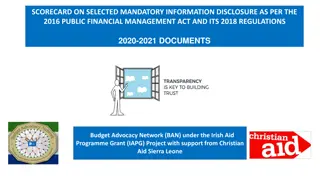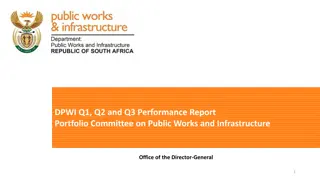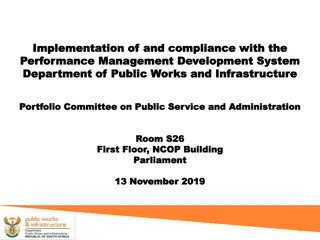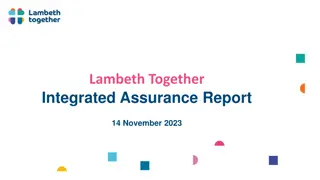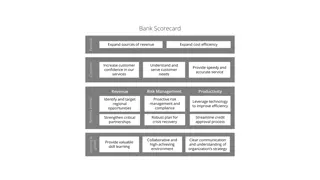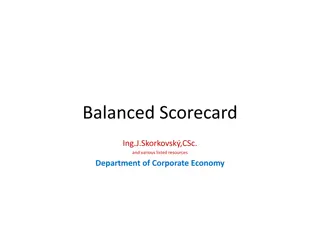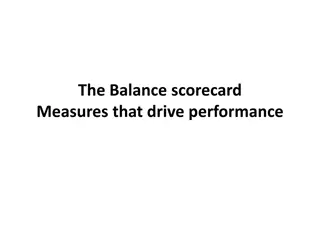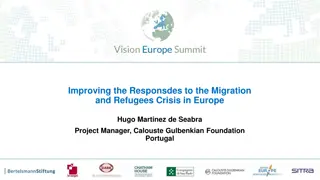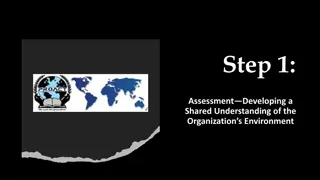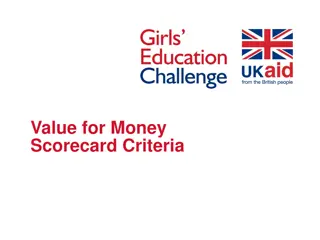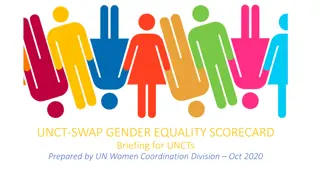Annual Assessment of Europe's Performance Through the Scorecard System
A team of researchers advises on Europe's performance across 6 issues, including successes such as the Iran breakthrough and Serbia-Kosovo deal in 2013. Factors contributing to success include collaboration, leadership, and economic improvement. Key findings highlight Europe's interactions with China, the United States, and the Middle East, emphasizing areas of cooperation and challenges faced in diplomacy and energy diversification.
Download Presentation

Please find below an Image/Link to download the presentation.
The content on the website is provided AS IS for your information and personal use only. It may not be sold, licensed, or shared on other websites without obtaining consent from the author.If you encounter any issues during the download, it is possible that the publisher has removed the file from their server.
You are allowed to download the files provided on this website for personal or commercial use, subject to the condition that they are used lawfully. All files are the property of their respective owners.
The content on the website is provided AS IS for your information and personal use only. It may not be sold, licensed, or shared on other websites without obtaining consent from the author.
E N D
Presentation Transcript
What is the Scorecard? A comprehensive, systematic annual assessment of Europe s performance in achieving its goals in the world A team of 40 researchers advised by a Steering Group Europe = EU + the 28 member states Europe is assessed on 6 issues divided into 66 components Grades (A-D) are awarded on the basis of unity, resources and outcome Member states are categorised as leaders , supporters or slackers
2013: Two historic successes, a long time in the making Iran breakthrough: European response to President Bush s axis of evil speech (2002) E3+3 talks began in 2007 Serbia-Kosovo deal: European attempt to stabilise the Balkans since the NATO military intervention in Kosovo (1999) Steps towards normalisation between Serbia and Kosovo since 2004
Factors of success? excellent collaboration between the EU and the member states most involved. role of High Representative Catherine Ashton showed European toughness and persistence popular desire to move on and improve economic conditions
Key findings (1) China (B-) Europe and China co- operated on Syria, Mali and the Iranian nuclear problem, but member states undermined the European Commission in the solar panel dispute with China. Russia (C+) Europeans struggled to respond to increasing pressure on eastern neighbourhood states. European resolve on energy issues did not lead to successful diversification of energy.
Key findings (2) United States (B-) There were breakthroughs on TTIP negotiations and co-operation on an Iran nuclear deal. But the Snowden revelations led to a breakdown in European trust in the US. Wider Europe (C+) Ashton facilitated a historic agreement between Kosovo and Serbia. But setbacks in negotiations with Ukraine and Armenia showed that Europe needs to find a way to respond to Russian pressure.
Key findings (3) Middle East and North Africa (C+) A breakthrough with Iran, but elsewhere Europe struggled as the conflict in Syria worsened and the military took over in Egypt. Multilateral issues and crisis management (B) France intervened in Mali and CAR but only got limited support from other member states. Diplomatic efforts on Syria and climate issues were disappointing
The Big 3 France becoming more British ? UK becoming more German ? Germany becoming more Polish ?
2 Transatlantic stories TTIP could be the EU s next big success story But Transatlantic unity undermined by Snowden revelations of NSA spying Transatlantic split could be more damaging than the Iraq war a decade ago Did not derail TTIP negotiations in 2013 but could in 2014






